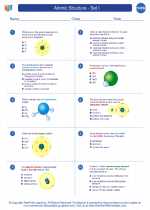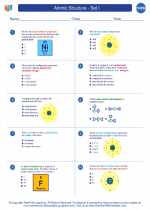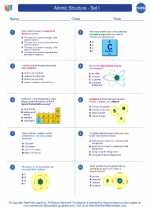Invertebrates
Invertebrates are animals that do not have a backbone or spinal column. They make up about 97% of all animal species on Earth and can be found in a wide range of environments, including oceans, freshwater, and on land.
Classification of Invertebrates
Invertebrates are classified into several groups:
- Porifera: These are the simplest form of invertebrates and include sponges.
- Cnidaria: This group includes jellyfish, sea anemones, and corals.
- Platyhelminthes: Also known as flatworms, this group includes tapeworms and flukes.
- Nematoda: These are roundworms, some of which are parasitic.
- Arthropoda: The largest group of invertebrates, including insects, arachnids, crustaceans, and myriapods.
- Mollusca: This group includes snails, clams, octopuses, and squid.
- Annelida: Segmented worms, including earthworms and leeches.
- Echinodermata: This group includes starfish, sea urchins, and sea cucumbers.
Key Characteristics
While invertebrates vary greatly in size, shape, and habitat, they share certain key characteristics:
- No Backbone: The absence of a spinal column is the defining feature of invertebrates.
- Diverse Body Plans: From simple radial symmetry in jellyfish to complex segmented bodies in arthropods, invertebrates display a wide range of body plans.
- Exoskeleton: Many invertebrates have an external skeleton, or exoskeleton, for support and protection.
- Muscular System: Most invertebrates have some form of muscular system for movement.
- Nervous System: While simpler than vertebrates, invertebrates have some form of nervous system to process information and respond to stimuli.
- Reproduction: Invertebrates reproduce in various ways, including sexual reproduction, asexual reproduction, and metamorphosis.
Ecological Importance
Invertebrates play crucial roles in ecosystems as pollinators, decomposers, predators, and prey. They are also important indicators of environmental health and serve as sources of food and medicine for humans.
Study Tips
When studying invertebrates, consider the following tips:
- Use flashcards to memorize the different groups of invertebrates and their key characteristics.
- Study the ecological roles of invertebrates and their importance in different ecosystems.
- Practice identifying invertebrates using pictures or specimens to familiarize yourself with their diverse body plans.
- Understand the evolutionary adaptations that have allowed invertebrates to thrive in various environments.
◂Chemistry Worksheets and Study Guides High School. Atomic Structure - Set I
Worksheet/Answer key Atomic Structure - Set I
Atomic Structure - Set I  Worksheet/Answer key
Worksheet/Answer key Atomic Structure - Set I
Atomic Structure - Set I  Worksheet/Answer key
Worksheet/Answer key Atomic Structure - Set I
Atomic Structure - Set I 

 Worksheet/Answer key
Worksheet/Answer key
 Worksheet/Answer key
Worksheet/Answer key

The resources above cover the following skills:
Concepts of Physical Science (SB1, SB2, SB3, SB4)
The student demonstrates an understanding of the structure and properties of matter by describing atoms and their base components (i.e., protons, neutrons, electrons).
The student demonstrates an understanding of the interactions between matter and energy and the effects of these interactions on systems by recognizing that atoms emit and absorb electromagnetic radiation.
Concepts of Physical Science (SB1, SB2, SB3, SB4)
The student demonstrates an understanding of the structure and properties of matter by using the periodic table to describe atoms in terms of their base components (i.e., protons, neutrons, electrons).